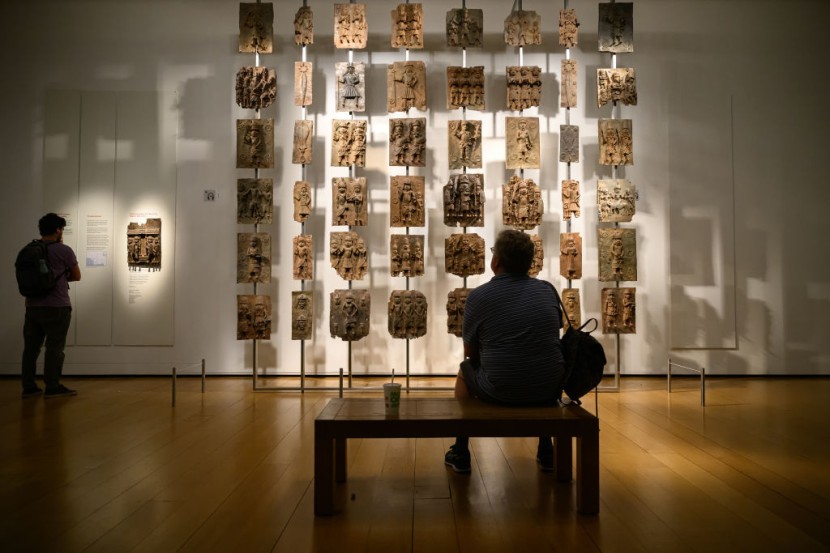
(Photo: by Leon Neal/Getty Images) LONDON, ENGLAND - AUGUST 23: Items from a collection of metal plaques and sculptures taken from modern-day Nigeria in 1897, commonly referred to as the Benin Bronzes, are seen in a gallery of African relics in the British Museum on August 23, 2023, in London, England.
After reporting in August that 2,000 artifacts had been lost or stolen, the British Museum said on Wednesday that it planned to digitize its entire collection, citing the need to guarantee public access to its extensive catalog.
One of the most popular museums in the world has been coping with the fallout from robberies that exposed internal issues and caused the director to resign.
According to interim director of the British Museum Mark Jones, "We have improved security and are now confident that a theft of this kind can never happen again," as reported by Reuters.
George Osborne, the museum's chair, was being questioned by the Culture, Media, and Sport Committee of Parliament about how the thefts had occurred and what actions were being taken to ensure they did not happen again when the revelation was made.
The projected digitization effort would require 2.4 million documents to be uploaded or upgraded, taking 5 years to complete. According to the museum's website, it has a collection of at least 8 million items.
Along with this online tool, the museum has also made plans for improved access to its study rooms, where visitors and scholars may schedule appointments to view additional artifacts from the collection.
Read also: Europe Discovers Oldest Shoes, Dating Back 6000 Years, Inside a Spanish Cave
An Inside Job?
The museum, one of the most esteemed cultural institutions in the UK, has been under fire ever since it was revealed in August that many priceless artifacts had been reported "missing, stolen, or damaged."
An unnamed member of staff was sacked, while the museum announced it was taking legal action and launching an independent review.
A Metropolitan Police investigation is underway and a man was interviewed under caution on August 23. No arrests have been made.
The thefts, believed to have taken place over a 'significant' period of time before 2023, also led to the departure of the museum's director Hartwig Fischer this summer.
He admitted the museum 'did not respond as comprehensively as it should have in response to warnings in 2021' about the thefts.
The objects in question were mostly retained for scholarly and research purposes, and they ranged in date from the 15th century BC to the 19th century AD.
Police are currently looking into the situation. Later this year, the results of the British Museum's external examination of what went wrong are anticipated to be released.
Additionally, the recovery of the objects is essential; 350 are now being sent back. That makes up around one-sixth of the entire group; what happened to the rest?
The select committee offered a chance for openness, and the institution's leaders—George Osborne, chair of the trustees, and Sir Mark Jones, the new temporary director—were forthright.
Related article: Ukrainian Churches Begin Using Gregorian Calendar Starting Sept. 1: Why the Change?








